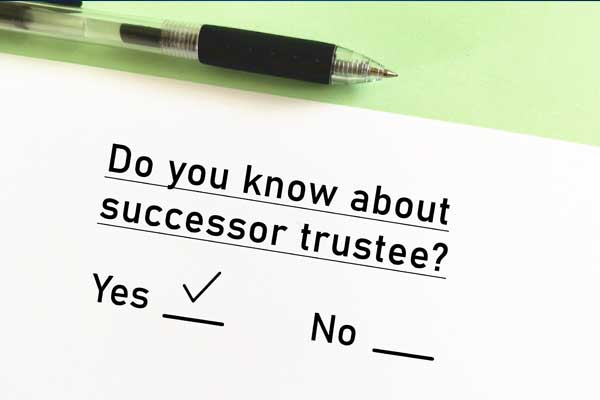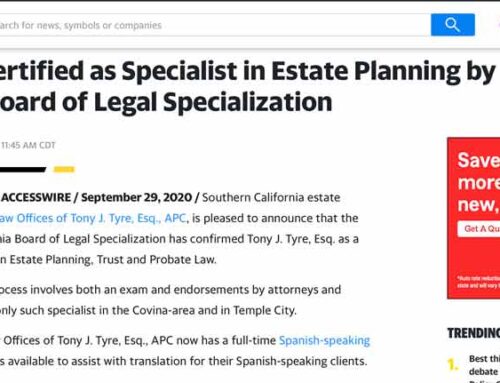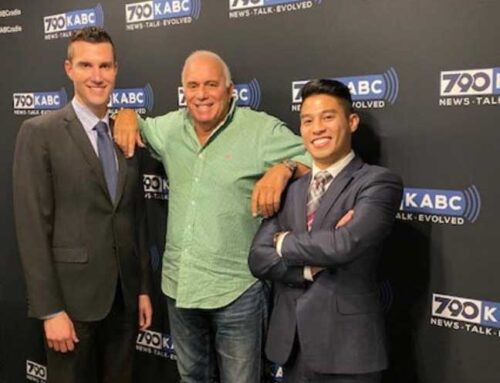Southern California estate planning attorney Tony J. Tyre, founder of The Law Offices of Tony J. Tyre, Esq., APC, lists the top three reasons why a successor trustee has a duty to act in the best interest of the named beneficiaries.
“They must avoid self-dealing by not deriving a personal gain in any way from his or her administration of the trust. For example, a successor trustee should not sell a piece of real property to himself or herself at a discount solely for the benefit of the successor trustee.”
Attorney Tony J. Tyre
LOS ANGELES (PRWEB) JULY 25, 2019
“Scenario: Your father was smart enough to have a trust drafted. As a result, his property can pass to you and his other beneficiaries without the lengthy and costly process of going to probate court. Now what?” asked Tyre.
When one’s father has a trust drafted, he became both the trustor (trust creator) and the trustee (the person in charge of the trust). “When he passed away, your father named a successor trustee (the next person in charge of the trust) to administer the trust,” added Tyre, who focuses on estate planning.
But what are the duties of a successor trustee? “Many,” stressed Tyre. “The successor trustee has a fiduciary relationship with the beneficiaries, which means the successor trustee has a duty to act in the best interest of the named beneficiaries.”
This general duty owed to beneficiaries by the successor trustee has various components, including the following three duties:
No. 1: Duty to disclose. A successor trustee has a duty to let trust beneficiaries and heirs at law know when a trust becomes irrevocable (upon the trustor’s passing). “A successor trustee must disclose a complete copy of the terms of the trust to a trust beneficiary, if requested,” noted Tyre.
No. 2: Duty of care. A successor trustee has a duty to follow what the trustor stated regarding distributions of income or principal. “A successor trustee also has a duty not to comingle trust funds with personal funds,” stated Tyre.
No. 3: Duty of loyalty. A successor trustee must be unselfish and undivided in his or her loyalty to trust beneficiaries. “They must avoid self-dealing by not deriving a personal gain in any way from his or her administration of the trust. For example, a successor trustee should not sell a piece of real property to himself or herself at a discount solely for the benefit of the successor trustee,” said Tyre.
The bottom line is being a successor trustee should not be taken lightly. “If you become a successor trustee, you should consult an attorney to ensure you are compliant with California law as a fiduciary,” concluded Tyre.
About Tony J. Tyre, Law Offices of Tony J. Tyre, Esq., APC.
Tony J. Tyre is a highly respected estate planning attorney throughout California. He is a member of the State Bar of California and the U.S. District Court, Central District of California. The Law Offices of Tony J. Tyre, Esq., APC is dedicated to fulfilling all of the estate planning drafting and estate and trust administration needs of its clients. For more information, call (626) 858-9378, or visit https://tyrelawgroup.com. The law offices are located at 100 S Citrus Ave., Suite 101, Covina, CA 91723 and 5703 Temple City Blvd., Temple City, CA 91780.






